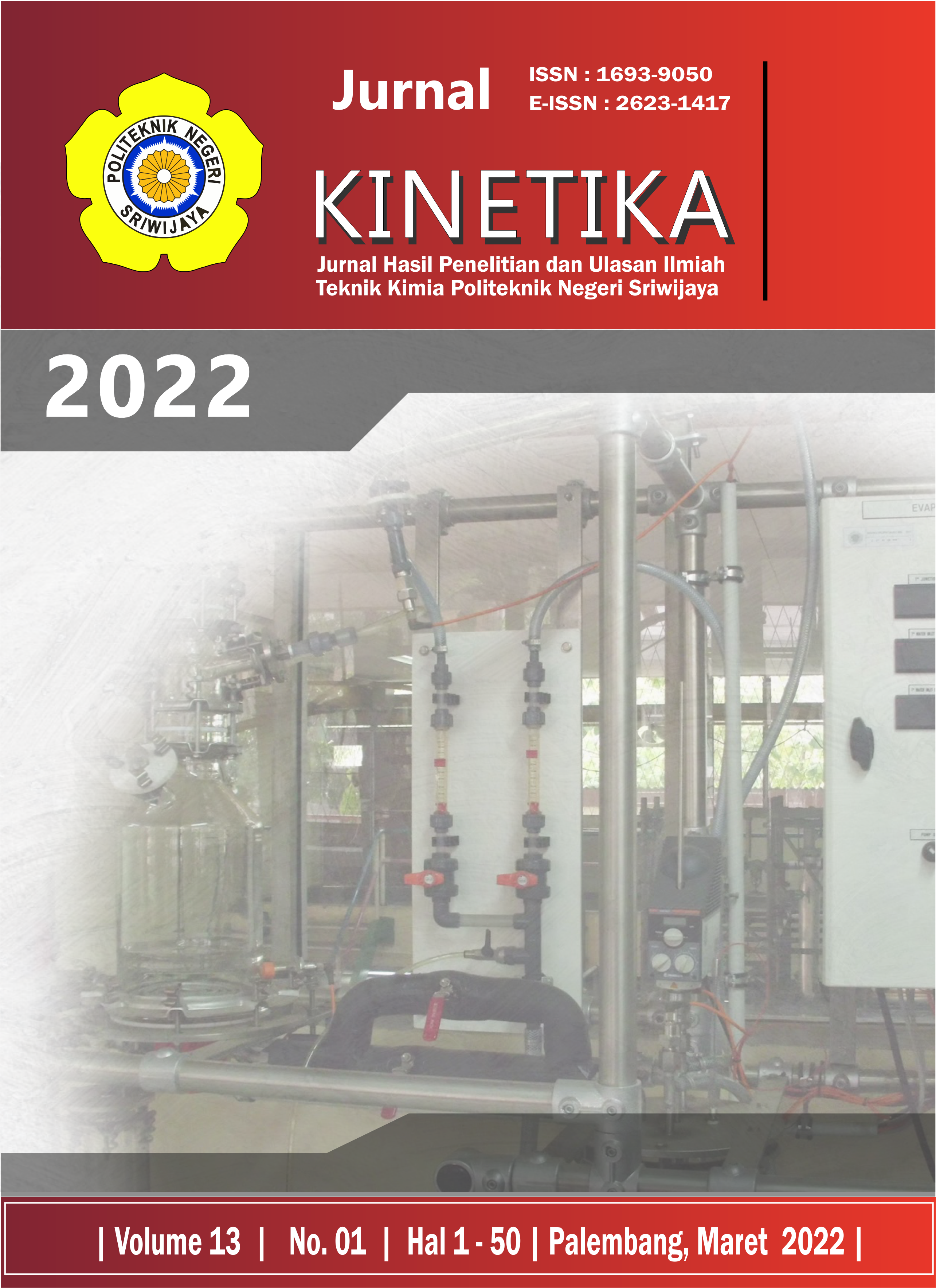DEGRADATION OF TSS AND TDS IN LEMATANG RIVER WATER USING PALM OIL SHELLS (Elaeis Oleifera) AS A FILTRATION MEDIUM
Palm Oil Shells (Elaeis Oleifera) is a waste from the remaining fragments of palm oil shells
Abstract
Palm Oil Shells (Elaeis Oleifera) is a waste from the remaining fragments of palm oil shells. The waste is made into activated carbon in two stages such as carbonization and activation using HCl. The activated carbon can reduce impurities and metals in the Lematang river water with the parameters of TSS (Total Suspended Solid) and TDS (Total Dissolved Solid). The results of the analysis showed a decrease in the levels of TSS and TDS in the raw water of the Lematang river. In the TSS test the results obtained were 0.5 grams of activated carbon of 14,402 mg/L, for 1 gram of 16,210 mg/L, and for 1.5 grams of 20,041 mg/L. Meanwhile, the TDS test yielded 68 mg/L for 0.5 grams, 77 mg/L for 1 gram and 83 mg/L for 1.5 grams of activated carbon. So that the best adsorption occurs with the use of 0.5 grams activated carbon.
Keywords : Activated Carbon, TSS, TDS, Palm Oil Shells


